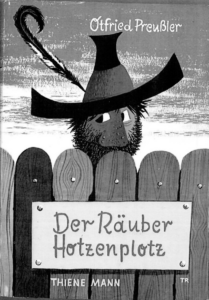The Robber Hotzenplotz is the title of a book series for children, written by Ottfried Preußler. The figure of robber Hotzenplotz is characterized on the book cover by a huge black hat, a red band and a feather.
A political party incorporated the face of the Austrian city’s mayor into the drawing of robber Hotzenplotz and used it for a political campaign under the slogan ‘Räuber Rathausplatz’ (Town Hall Robber). The defendant political party and its state party leader were criticising the Austrian mayor and his party by using a drawing of the mayor standing behind a fence wearing a comparable ‘robber’s hat’.
The publisher that holds the rights to the children’s book series ‘The Robber Hotzenplotz’ filed a lawsuit.
The court of appeal issued a preliminary injunction prohibiting the defendants from using the illustration on the book cover because it constituted an unlawful infringement of the plaintiff’s copyright.
In its decision 4 Ob 97/24d of 27 August 2024, the Austrian Supreme Court dismissed the defendants’ appeal affirming that the Higher Regional Court’s assessment was within the framework of the previous case law of the Austrian Supreme Court (e.g.: on May 24, 2022; 4 Ob 37/22b – Gegendemonstration) and the European Court of Justice (C-201/13, Deckmyn und Vrijheidsfonds).
The free use of a third party’s work for one’s own work (Section 5 (2) Austrian Copyright Act) requires that the third party’s work serves only as a suggestion and is completely relegated to the background in the newly created work. However, the Higher Regional Court found that the defendants had not merely taken up the robber’s basic idea, but had adopted the essential parts of the original, namely the way he looks over a fence while wearing a specially designed hat.
The fact that the Higher Regional Court denied a justification as a ‘political parody’ in an individual case was also considered justifiable in the sense of Section 42f (2) Copyright Act, Art 5 (3) (k) Info-Directive 2001/29/EC and Art 17 (7) Directive 2019/790 amending Directives 96/9/EC and 2001/29/EC. According to the case law of the CJEU (C-201/13, Deckmyn and Vrijheidsfonds), when it comes to the free use of works for ‘parodies’, a fair balance must be struck in each specific case between the interests and rights of the author and the user’s freedom of expression. Therefore, the Vienna Higher Regional Court’s balance of the interest of the owner of rights in a children’s book in not being associated with a political campaign (of whatever content), in which he never participated, against the defendant’s (non-existent) interest in use, was confirmed by the Supreme Court. The Court concluded that the defendants could have asserted their point of view and the stylistic device of parody without interfering with the copyrights, and that the recourse to ‘Robber Hotzenplotz’ serves less to convey a political message rather than to exploit its popularity and is therefore inadmissible. The drawing of Robber Rathausplatz thus is an infringement of the copyright of the drawing of Robber Hotzenplotz.
_____________________________
To make sure you do not miss out on regular updates from the Kluwer Copyright Blog, please subscribe here.
Kluwer IP Law
The 2022 Future Ready Lawyer survey showed that 79% of lawyers think that the importance of legal technology will increase for next year. With Kluwer IP Law you can navigate the increasingly global practice of IP law with specialized, local and cross-border information and tools from every preferred location. Are you, as an IP professional, ready for the future?
Learn how Kluwer IP Law can support you.
